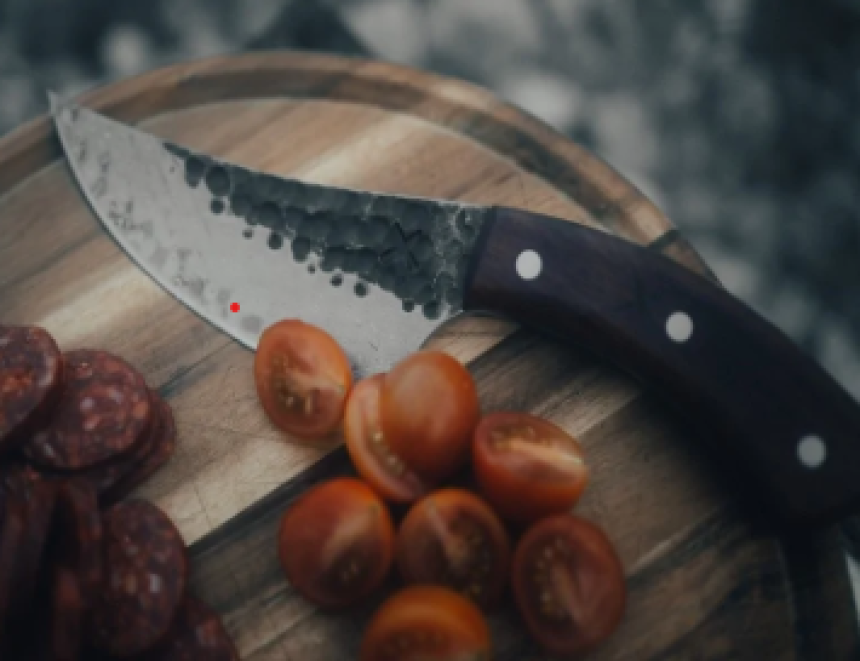
MASTERING DAMASCUS KNIFE CARE: ESSENTIAL TIPS FOR LONGEVITY
Caring for your Damascus knife is crucial for maintaining its sharpness, durability, and stunning appearance. Learn essential cleaning, storage, and maintenance tips to keep your knife in peak condition and ensure it lasts for years. Proper handling and regular maintenance can help you enjoy the exceptional performance and beauty of Damascus steel knives.
2024-07-30 07:26:35 - BazaarLimited
MASTERING DAMASCUS KNIFE CARE: ESSENTIAL TIPS FOR LONGEVITY
Damascus hunting knives are not only prized for their exceptional cutting performance but also for their stunning, unique patterns. To maintain the beauty and functionality of these exquisite blades, proper care and maintenance are essential. In this guide, we will provide you with essential tips to ensure the longevity of your Damascus knife.
1. Understanding Damascus SteelWhat Makes Damascus Steel Unique?
Damascus steel is renowned for its distinctive wavy patterns and superior strength. These knives are made by folding and forging multiple layers of steel, resulting in a blade that combines hard and soft steel. This process creates a blade that is not only sharp and durable but also visually striking.
Benefits of Damascus Steel Knives
- Exceptional Sharpness: The fine grain structure of Damascus steel allows for a razor-sharp edge.
- Durability: The layering process results in a tough blade that resists chipping and breaking.
- Aesthetic Appeal: Each Damascus blade has a unique pattern, making it a functional piece of art.
2. Cleaning Your Damascus KnifeImmediate Cleaning After Use
One of the most important aspects of caring for your Damascus knife is to clean it immediately after use. Leaving food residues on the blade can cause staining and corrosion.
- Hand Wash Only: Always wash your Damascus knife by hand using warm water and mild soap. Avoid using a dishwasher, as the harsh detergents and high temperatures can damage the blade.
- Gentle Scrubbing: Use a soft sponge or cloth to gently scrub the blade. Avoid abrasive materials that can scratch the surface.
Drying the Blade Thoroughly
After washing, it’s crucial to dry your knife thoroughly to prevent rust and corrosion.
- Use a Soft Cloth: Wipe the blade with a soft, dry cloth to remove any moisture.
- Air Dry: Allow the knife to air dry completely before storing it.
3. Proper Storage TechniquesChoosing the Right Storage Option
Proper storage is key to maintaining the sharpness and integrity of your Damascus knife.
- Knife Block: A wooden knife block is an excellent option for storing your knives safely.
- Magnetic Strip: A magnetic strip can keep your knives within easy reach while protecting the blade from damage.
- Blade Guards: If you need to store your knife in a drawer, use blade guards to protect the edge from nicks and scratches.
Avoiding Humid Environments
Humidity can cause your Damascus knife to rust. Store your knife in a dry, well-ventilated area to prevent moisture buildup.
4. Regular MaintenanceHoning the Blade
Regular honing helps maintain the sharpness of your Damascus knife by realigning the edge.
- Use a Honing Rod: A ceramic or steel honing rod is ideal for keeping the blade sharp.
- Gentle Strokes: Hold the knife at a 15-20 degree angle and gently draw the blade across the rod.
Sharpening the Blade
While honing maintains the edge, sharpening is necessary to restore a dull blade.
- Whetstone Sharpening: Use a whetstone to sharpen your Damascus knife. Soak the stone in water for 10-15 minutes before use.
- Consistent Angle: Maintain a consistent angle (usually 15-20 degrees) while sharpening to ensure an even edge.
5. Protecting the Blade’s FinishApplying Blade Oil
Applying a thin layer of oil can protect your Damascus knife from rust and corrosion.
- Food-Grade Mineral Oil: Use a food-grade mineral oil to coat the blade.
- Regular Application: Apply oil regularly, especially if the knife will not be used for an extended period.
Avoiding Harsh Chemicals
Harsh chemicals can damage the blade’s finish and pattern. Stick to mild soaps and avoid bleach or acidic cleaners.
6. Handling TipsSafe Cutting Techniques
Proper handling techniques can prolong the life of your Damascus knife.
- Avoid Hard Surfaces: Do not cut on hard surfaces like stone or glass. Use a wooden or plastic cutting board instead.
- Avoid Twisting Motions: Twisting the knife can damage the edge. Use straight, controlled cuts.
Using the Knife for Intended Purposes
Avoid using your Damascus knife for tasks it is not designed for, such as prying or hammering, which can damage the blade.
7. Conclusion
Taking proper care of your Damascus knife ensures that it remains sharp, durable, and visually appealing for years to come. By following these essential tips for cleaning, storing, and maintaining your knife, you can enjoy the exceptional performance and beauty of Damascus steel.
